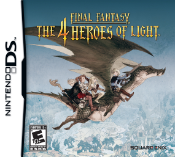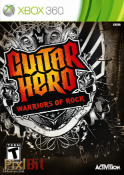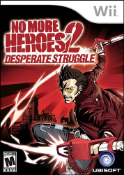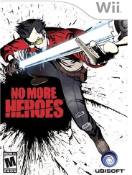A demo of this game will be available at www.mmh6.com/demo.
Ubisoft celebrates the 25th anniversary of the Might & Magic franchise with the release of Might & Magic Heroes 6 beta.
Jason analyzes the recent sale of Harmonix, and what it means for the future of rhythm game sales.
A few months ago, Viacom sold off rhythm game developer Harmonix for a reported amount of fifty dollars. The most shocking aspect of this trade is that Viacom originally bought Harmonix for $175 million. Apparently the trade gives Viacom about $150 million in tax benefits, which is quite a hefty number, itself, but still, it seems like this is a major failure on Viacom's part, which reflects as a failure on the part of Harmonix, itself. A little while later, Activision reported that they will not publish a new Guitar Hero or DJ Hero game in 2011 after disappointing sales of the previous entry, simultaneously halting future DLC for the two franchises. The once-popular music gaming genre appears to have come to a screeching halt after oversaturation and the companies' failure to understand the market.
A beautiful celebration of the classic, old-school RPG.
Final Fantasy is one of gaming's longest-running and most prestigious series. It started humbly as the expected swan song for sinking Japanese game developer Square Soft, but its surprising success has made the series and its developer a forerunner in the gaming world. These days Final Fantasy seems to be caught up in its own limelight. The 4 Heroes of Light takes the now bloated and flashy cut scenes and increasingly complex gameplay formula and shakes it back down to its core. What stands in its place is a celebration of the series' roots.
I hate to say it, but Telephantasm is the best part of the whole package.
At this point, the Guitar Hero series has undoubtedly overstayed its welcome. While the series saw some definite innovation in its transition from 3 to World Tour, and moderately so from World Tour to 5, Warriors of Rock brings almost nothing to the table. Sure there's a new track list and they added the mediocre Quest Mode, but the only thing that truly stands out is the Quickplay + Mode that began in the last iteration of the series.
A solid, but still flawed follow-up to Travis Touchdown's first outing.
As you all know, around two weeks ago I played through No More Heroes for the first time. With the second game already out, it only made sense to keep on going and jump right into No More Heroes 2: Desperate Struggle.
Inspired by the release of the second game, Nick revisits No More Heroes for PixlBit's second Review Rewind.
I definitely missed the boat with No More Heroes. Sure, I bought it near release, but the best I ever did was wipe out the first boss and get into a few side jobs. Other things seemed to come up and the game got shelved indefinitely. As we all know, the second title in the series has just been released, which incidentally acted as a pretty good motivator to go back and finish what many called one of the Wii's greatest games.
Who knew Batman could be transformed into a third-person stealth Bioshock.
When I first heard about Batman: Arkham Asylum, I thought it was too good to be true. I figured it would end up being nothing more than a typical disappointing licensed game. Then the pieces started coming together: Kevin Conroy and Mark Hamill of Batman: The Animated Series fame were set to voice Batman and the Joker respectively, the combat seemed to capture the Dark Knight's signature style, and the story was being penned by prolific comic writer Paul Dini. At the end of it all, Arkham Asylum turned out to be one of the best licensed games I've ever played, and one of the finest games of its kind.











